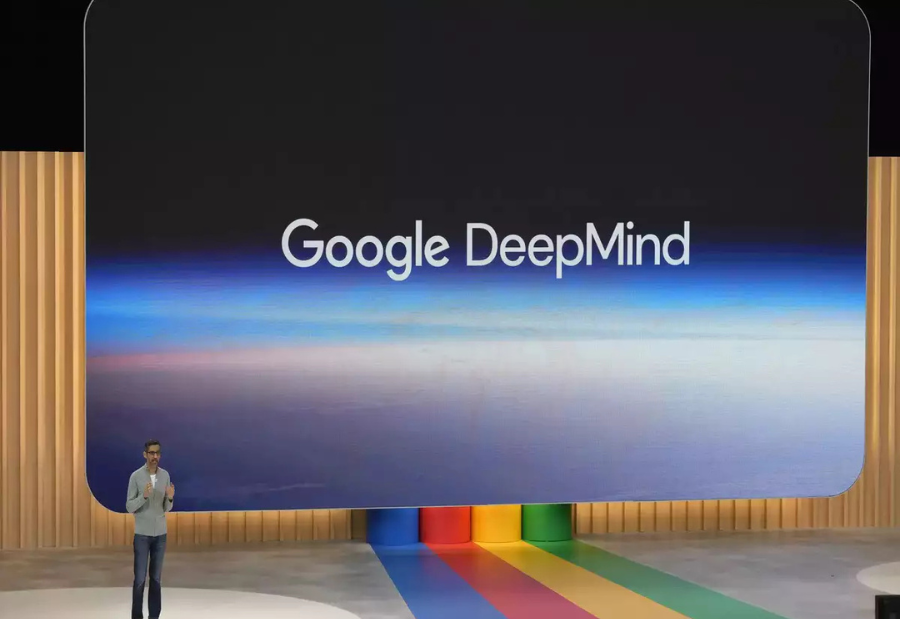Google DeepMind, the research arm of Alphabet Inc., announced the release of two ground-breaking AI models that will revolutionize the robotics sector. The new Gemini Robotics and Gemini Robotics-ER models are intended to address a recurring problem in robotics: allowing machines to adjust to erratic, real-world situations. The goal of Gemini Robotics, a division of Google’s flagship Gemini AI model, is to improve the agility and interaction of robots. Gemini Robotics-ER, on the other hand, focuses on spatial reasoning and provides developers with cutting-edge tools to build robots that can navigate challenging settings by utilizing Gemini’s potent reasoning capabilities.
Introducing the AI models, Google CEO Sundar Pichai wrote on Twitter, “We’ve always thought of robotics as a helpful testing ground for translating AI advances into the physical world. Today we’re taking our next step in this journey with our newest Gemini 2.0 robotics models. They show state of the art performance on two important benchmarks – generalization and embodied reasoning – which enable robots to draw from Gemini’s multimodal understanding of the world to make changes on the fly + adapt to their surroundings. This milestone lays the foundation for the next generation of robotics that can be helpful across a range of applications.”
Google ‘wants’ intelligent robot to deal with messiness
According to a Media, DeepMind engineer Kanishka Rao said that these advancements bring Google closer to realizing “general purpose robotics” — machines versatile enough to handle a wide range of tasks. “Our worlds are super messy and dynamic and rich,” Rao reportedly said during a media briefing. “A general purpose intelligent robot needs to be able to deal with that messiness.”
With companies obtaining significant investment rounds and industry titans like Meta Platforms Inc., Tesla Inc., and OpenAI stepping up their efforts, the news coincides with a renewed interest in robotics throughout Silicon Valley. Building on this momentum, Google’s most recent effort features a pre-recorded demonstration of its technology.
The highs and lows of Google’s robotics journey
Over the years, Google’s robotics adventure has had its ups and downs. In an effort to realize co-founders Larry Page and Sergey Brin’s vision of machine learning-powered, consumer-friendly robots, the business purchased eight robotics companies more than ten years ago. Eventually, those projects moved to Alphabet’s moonshot lab, Google X, which gave rise to Everyday Robots in 2021, a division tasked with doing menial duties like sorting trash. Though it promised to incorporate the technology into other robotics initiatives, Alphabet closed Everyday Robots in 2023 due to extensive budget cuts. Google now seems to be reviving its goals with generative AI at the forefront.
Google: Robotics AI still in ‘early phase’
Vikas Sindhwani, a research scientist at DeepMind, stated that the new models are still in the “early exploration” stage. The Gemini models are designed to demonstrate “common sense safety” in real-world situations since safety is a top concern. Google intends to roll out the technology gradually, progressively increasing engagement as safety improves and beginning with robots working at a safe distance from people.
In order to speed up development, Google is working with robotics firms including Boston Dynamics, a former Alphabet company that was sold to SoftBank in 2017, Agile Robots, and Apptronik, with whom it is creating humanoid robots.
Also read: Viksit Workforce for a Viksit Bharat
Do Follow: The Mainstream formerly known as CIO News LinkedIn Account | The Mainstream formerly known as CIO News Facebook | The Mainstream formerly known as CIO News Youtube | The Mainstream formerly known as CIO News Twitter
About us:
The Mainstream formerly known as CIO News is a premier platform dedicated to delivering latest news, updates, and insights from the tech industry. With its strong foundation of intellectual property and thought leadership, the platform is well-positioned to stay ahead of the curve and lead conversations about how technology shapes our world. From its early days as CIO News to its rebranding as The Mainstream on November 28, 2024, it has been expanding its global reach, targeting key markets in the Middle East & Africa, ASEAN, the USA, and the UK. The Mainstream is a vision to put technology at the center of every conversation, inspiring professionals and organizations to embrace the future of tech.




